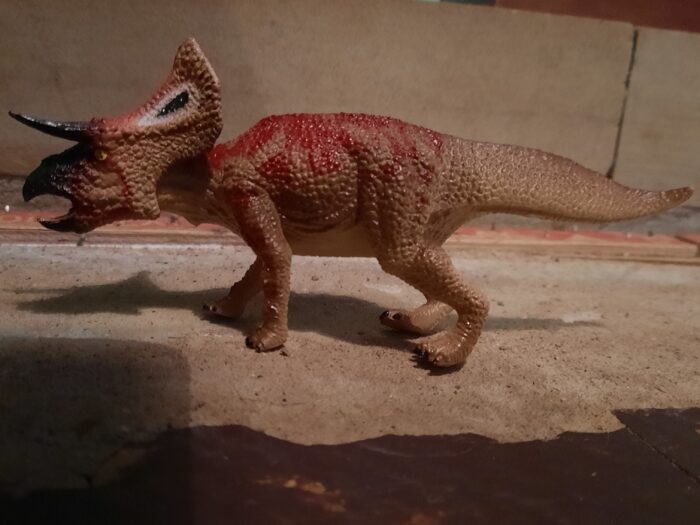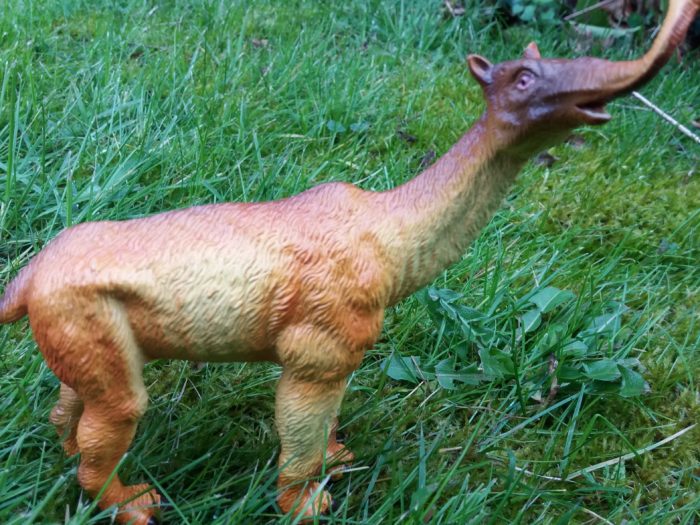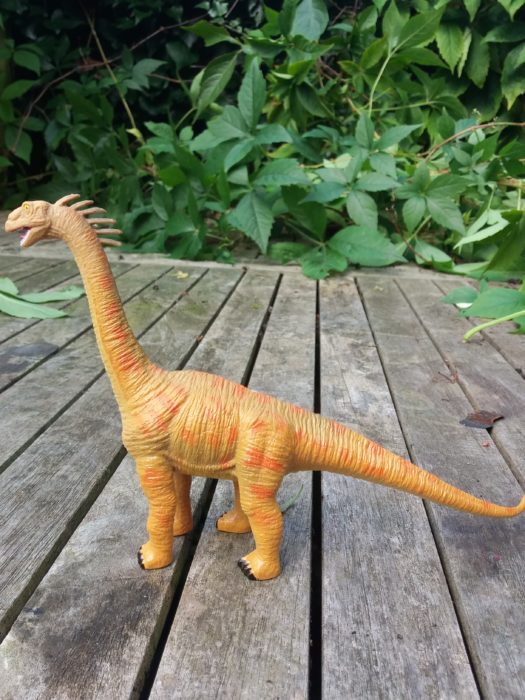The Cretaceous period was a time of mighty titans among the dinosaurs, with gigantic animals all across the globe. Largest of these were the sauropods, and they reached monumental sizes, from pony sized to thirty metre giants. They were present on almost every continent, with several on Africa.
Brand: Jurassic Hunters
Review: Parasaurolophus (Jurassic Hunters by Geoworld)
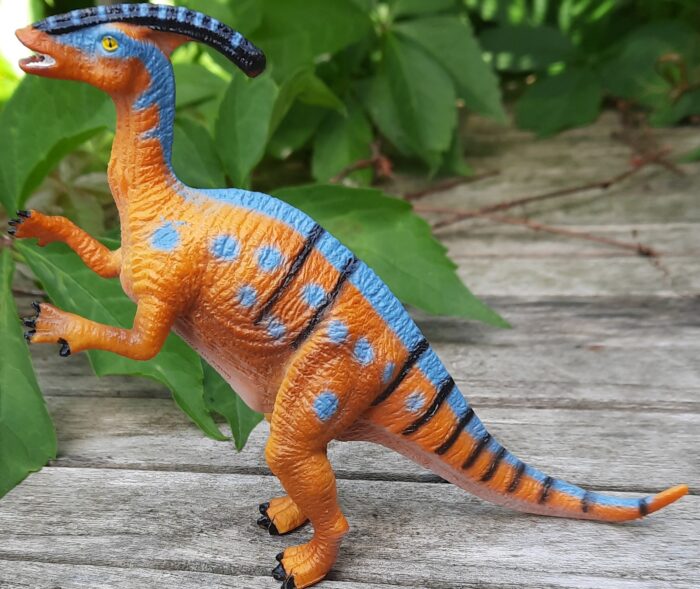
Of all the Hadrosaurs, Parasaurolophus is by far the most commonly produced in toy lines. It’s flashy headpiece is likely the main reason, as the rest of the body is somewhat lacklustre. Sizeable, but not the most interesting. The crest is where it’s at, with the function and skin attachments being a major source of debate.
Review: Coelodonta (Jurassic Hunters by Geoworld)
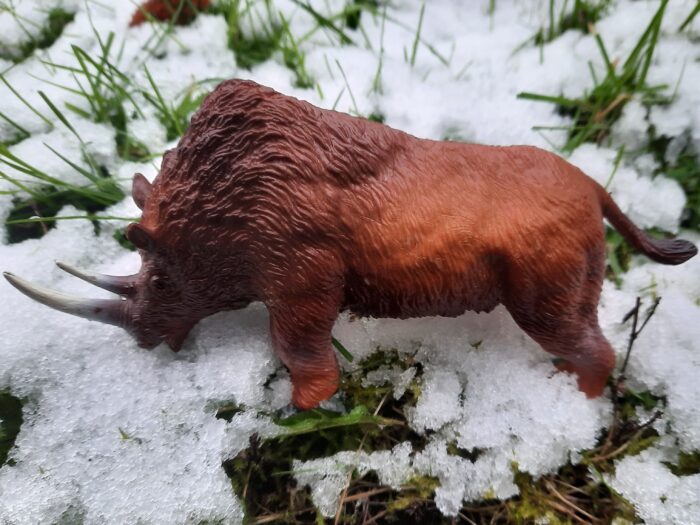
I sometimes can’t believe it’s been nearly five years since I first reviewed a figure, a woolly rhino by Papo. I felt recently that I should take a nostalgic look back at the beast that started it all, review a figure of the great animal that once roamed the grasslands of Europe and Asia some 10,000 years ago.
Review: Zuniceratops (Jurassic Hunters by Geoworld)
Review: Tyrannnosaurus (Jurassic Hunters by Geoworld)
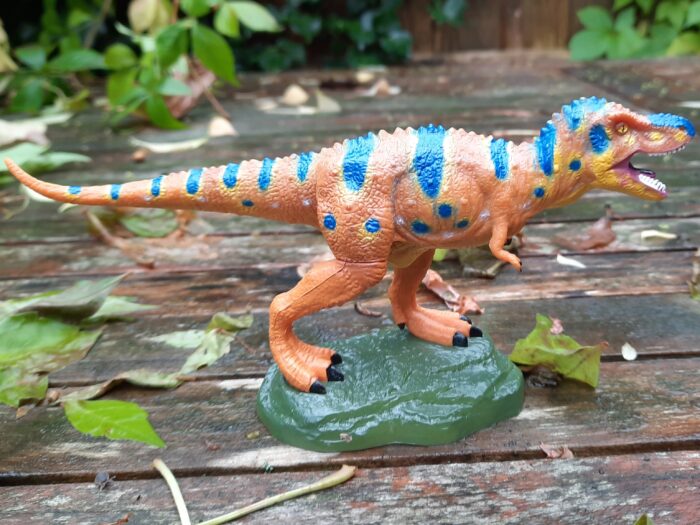
Feathered or scaly? Upright or vertical? Predator or scavenger? The king of the tyrant lizards has gone through a lot of changes over the last century, and I dare say will continue to alter as more discoveries are made. As a result, there are hundreds of figures, representing all the variations it could possibly have.
Review: Hipparion (Jurassic Hunters by Geoworld)
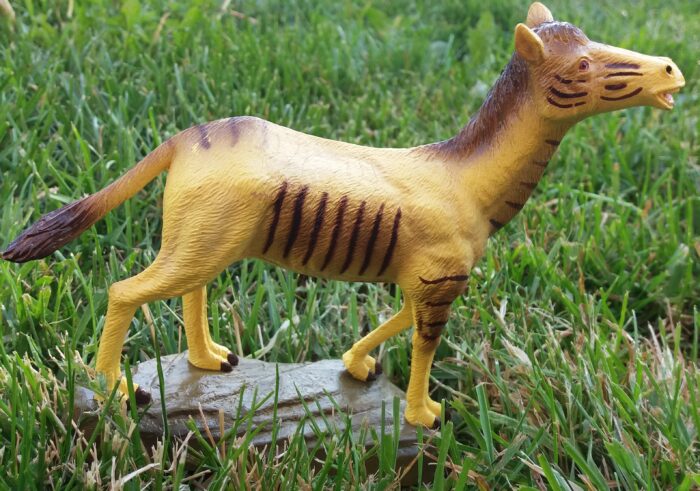
Ancient horses really don’t get much love in the toy market. Aside from Starlux and Bullyland, no one has added to the herd of prehistoric equinids. That is until Geoworld brought out their rendition of Hipparion, one of the most successful horses ever, lasting 22 million years and covering almost every continent, before dying off in the Mid-Pleistocene, possibly being out competed by the modern horse.
Review: Megatherium (Jurassic Hunters by Geoworld)
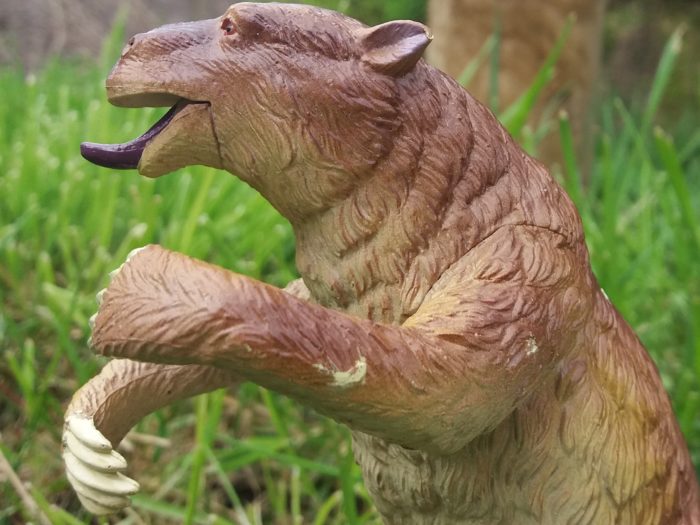
Since it’s first discovery in 1788, Megatherium has garnered much attention, not just from scientists but by the general public, it’s large size and fearsome claws drawing in many. In spite of the discovery of larger creatures over the centuries, this gargantuan xenarthran still has it’s fair share of art and models dedicated to it.
Review: Thylacosmilus (Jurassic Hunters by Geoworld)
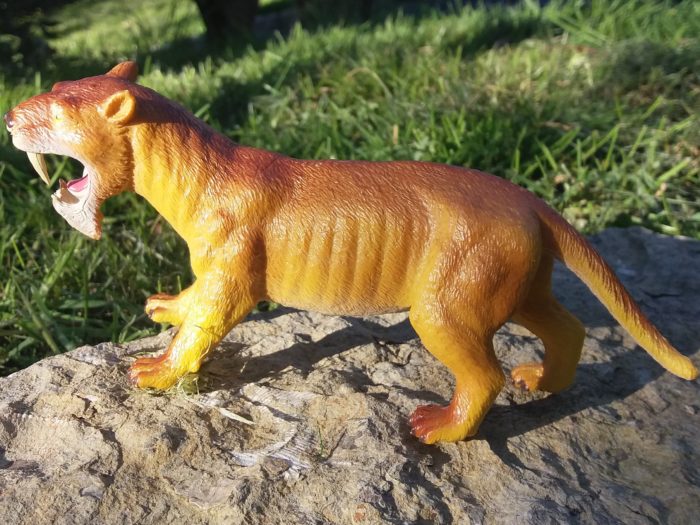
Animals can adapt to their environment in many different ways, resulting in many interesting species. but the more interesting case is when two distinctly different species, not even closely related, evolve similar or the same adaptation, known as convergent evolution. Such is the example whit this review: Thylacosmilus, which may look like a sabre toothed cat, but is in fact a sprassodont, a marsupial from South America.
Review: Macrauchenia (Jurassic Hunters by Geoworld)
Review: Ornitholestes (Jurassic Hunters by Geoworld)
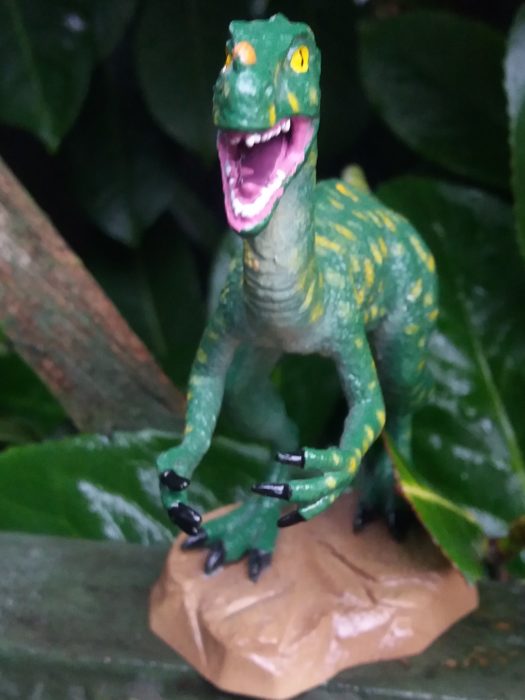
There is a line in the play “Arcadia” by Tom Stoppard that I feel encapsulates science, especially palaeontology, brilliantly: “The greatest moment in life is when you find everything you thought was true was wrong.” The number of changes in thoughts about prehistoric life certainly proves this, as with the species I am reviewing here, Ornitholestes.
Review: Cryolophosaurus (Jurassic Hunters by Geoworld)
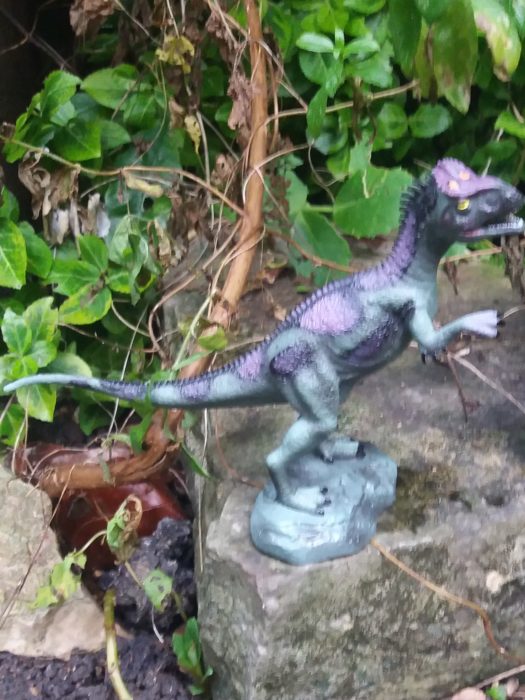
Fossils from the polar regions are a rarity, and it often boggles the mind to think of dinosaurs in the ice and snow of places like Antarctica. During the Late Jurassic, Antarctica was part of Gondwanaland, so was warmer and host to a large number of dinosaurs, such as the theropod Cryolophosaurus, nicknamed “Elvisaurus” for its phenomenal crest.





